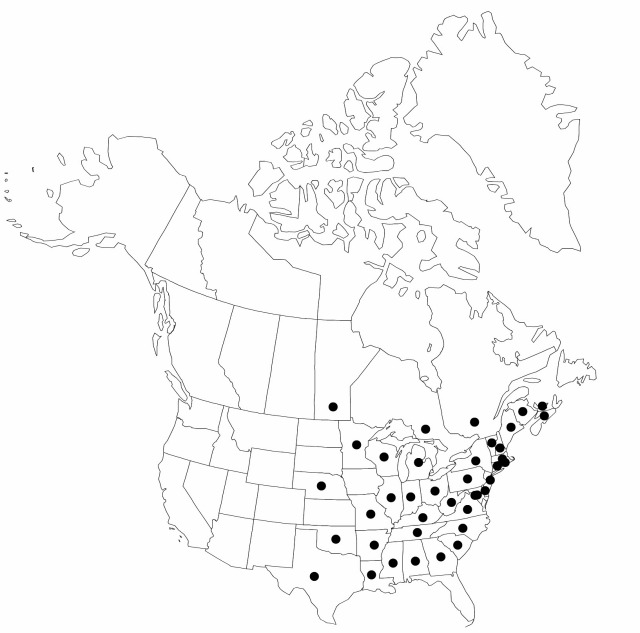Difference between revisions of "Carex crinita"
in J. Lamarck et al., Encycl. 3: 393. 1791.
FNA>Volume Importer |
FNA>Volume Importer |
Revision as of 21:09, 16 December 2019
Plants cespitose. Culms acutely angled, 40–150 cm, scabrous. Leaves: basal sheaths red-brown or brown; sheaths of proximal leaves bladeless, glabrous, fronts red-brown to copper-brown, spots absent, indistinctly ladder-fibrillose, apex U-shaped; blades hypostomic, abaxially papillose. Proximal bract longer than inflorescence, 3–6 mm wide. Spikes usually pendent; staminate 1–3, base cuneate or attenuate. Pistillate scales pale to copper-brown, midvein reaching apex, broad, apex of body retuse, aristate. Perigynia divergent, pale brown, inflated, loosely enclosing achenes, obovoid, dull, apex rounded, obtuse or truncate, glabrous. Achenes constricted on one or both margins or lacking constrictions; style base straight.
Distribution

North America.
Discussion
Varieties 2 (2 in the flora).
The status of Carex crinita var. porteri (Olney) Fernald [C. porteri Olney], a rare, long-beaked taxon known from two sites in Somerset and Lincoln counties, Maine, is in question and is not treated here. It has not been collected since around the early 1900s.
Selected References
Key
| 1 | Achenes variously constricted; perigynia ellipsoid to obovoid. | Carex crinita var. crinita |
| 1 | Achenes not constricted; perigynia broadly obovoid. | Carex crinita var. brevicrinis |